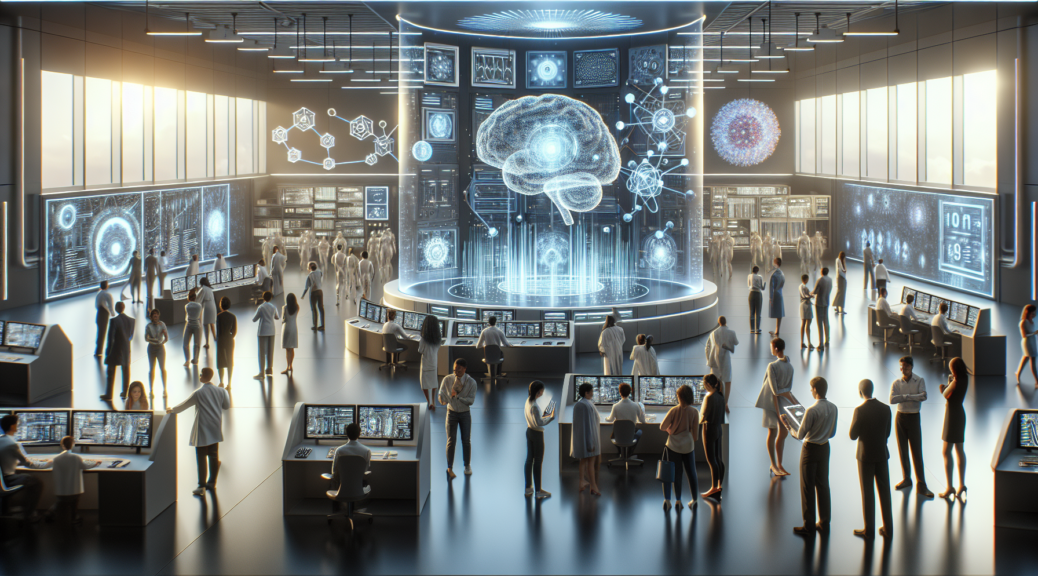
Meta’s Superintelligence Lab Reimagines AI Strategy for Future Breakthroughs
Meta’s Superintelligence Lab Reimagines AI Strategy for Future Breakthroughs
In the ever-evolving world of artificial intelligence, staying ahead of the curve requires not only technological innovation but also strategic foresight. Meta, formerly known as Facebook, recognizes this necessity and has recently announced significant changes in its AI strategy through the Superintelligence Lab. These changes could very well shape the future of AI and its integration into our daily lives.
Understanding the Superintelligence Lab
Meta’s Superintelligence Lab is at the heart of the company’s AI research and development. This initiative aims to push the boundaries of what’s possible with AI, focusing on creating systems that can perform tasks with unprecedented efficiency and autonomy. The lab is designed to explore new frontiers in AI, gearing up for a future where superintelligent systems could revolutionize industries.
The Need for Strategy Reevaluation
The complexity and capability of AI systems are growing at a rapid pace. As a result, the strategic framework for developing, deploying, and managing these systems must adapt accordingly. Meta’s decision to reevaluate its AI strategy is driven by several key factors:
- Technological Advances: Breakthroughs in machine learning and deep neural networks present new opportunities and challenges.
- Ethical Considerations: As AI systems play more significant roles, ensuring they are developed and used responsibly becomes paramount.
- Competitive Landscape: With tech giants racing towards AI supremacy, staying competitive requires nimble and forward-thinking strategies.
By reassessing its approach, Meta aims to align its capabilities with emerging trends and societal needs.
Key Changes in Meta’s AI Strategy
Meta’s new strategic direction encompasses several important facets:
1. Investment in Human-Centric AI
At the forefront of the strategy shift is a renewed focus on human-centric AI. Meta aims to create intelligent systems that complement rather than replace human abilities.
- Enhanced Collaboration: AI systems designed to work alongside humans, enhancing productivity and creativity.
- Intuitive Interfaces: Developing AIs that understand and interact with users in more natural and intuitive ways.
- Sociocultural Awareness: Ensuring AI understandings of human values, ethics, and societal norms.
2. Prioritizing Ethical AI Development
The potential for AI misuse prompts the necessity for ethical guardrails in its development process. Meta is spearheading initiatives to:
- Promote Transparency: Open research methodologies and clear documentation of AI decision-making processes.
- Ensure Accountability: Constructing systems that can be audited for compliance with ethical and legal standards.
- Foster Inclusivity: Building diverse teams to minimize biases and elevate inclusive AI design.
3. Leveraging Cross-Industry Collaborations
Understanding the limitations of siloed research, Meta is extending its collaborative approach:
- Academic Partnerships: Engaging with universities to tap into cutting-edge research and innovation.
- Industry Consortia: Collaborating with other tech companies to standardize practices and drive industry-wide advancements.
- Public-Private Initiatives: Working with governmental and non-profit organizations to tackle societal challenges using AI.
Impact on Global AI Development
Meta’s revised strategy potentially impacts the global trajectory of AI development. By emphasizing ethical, human-centric AI, Meta sets a standard for others to emulate. This approach could influence:
- Policy Formulation: Guiding policy-makers towards more informed AI regulation and oversight.
- Technological Ecosystems: Encouraging a shift toward holistic AI ecosystems where technology serves humanity.
- Public Perception: Building trust in AI technologies by demonstrating a commitment to ethical use.
Challenges and Opportunities
While the new strategy is promising, it does not come without its challenges. Balancing rapid innovation with ethical considerations requires meticulous planning and robust frameworks. However, these challenges also present opportunities:
- Innovative Leadership: The chance to redefine industry leadership by setting exemplary standards.
- Societal Impact: Using AI to address global issues such as climate change, health, and education.
- Business Growth: Expanding market opportunities by catering to the growing demand for ethical AI solutions.
Conclusion
Meta’s strategy shift is more than an internal reorientation; it represents a significant milestone in the evolution of artificial intelligence. As Meta’s Superintelligence Lab continues to pioneer research, the impact of these changes is likely to ripple through industries worldwide. By focusing on human-centric and ethical AI, Meta not only prepares itself for future breakthroughs but also sets a responsible path for others to follow. As we venture further into the age of superintelligent systems, Meta’s foresight today could safeguard tomorrow’s innovations.



